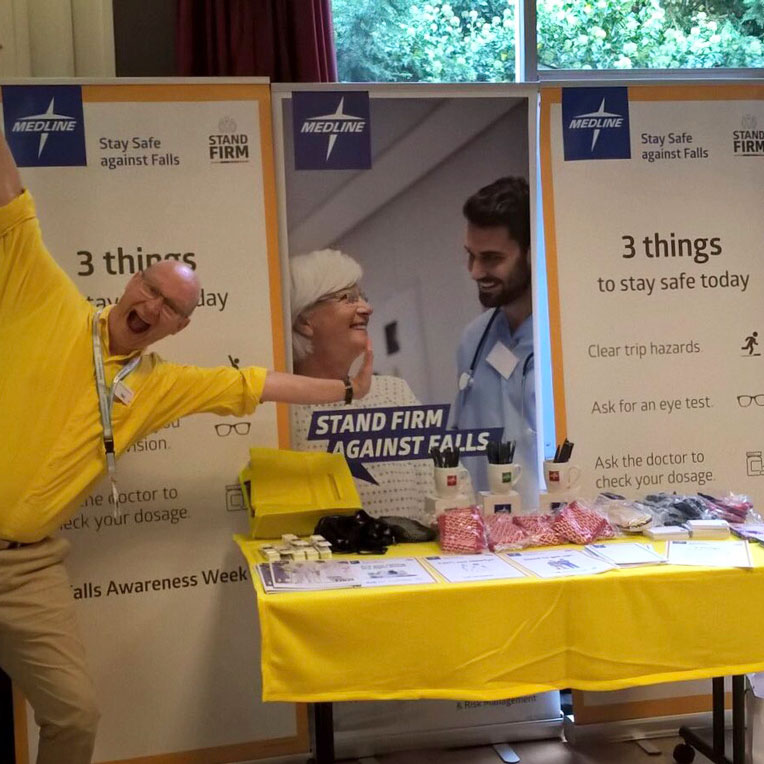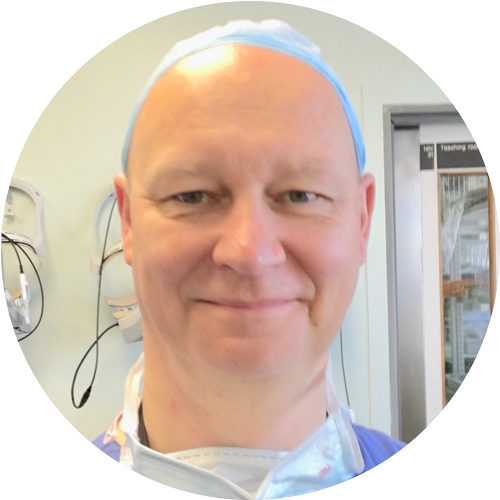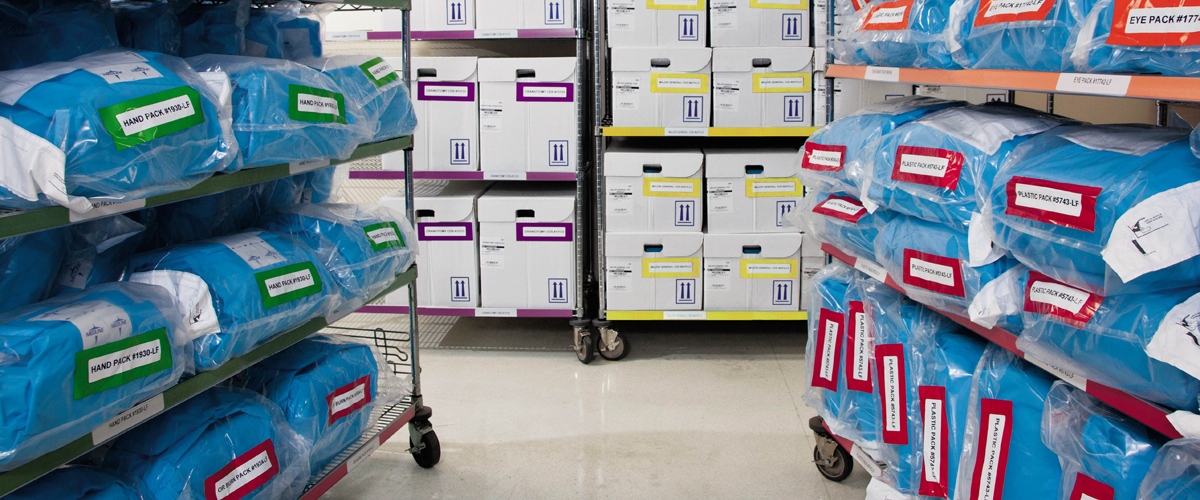Networking is generally seen as a business tool used to try to increase one’s circle of influence. But in healthcare, it can be a very powerful tool for change and improving patient outcomes.
Falls prevention practitioners often feel very isolated with few opportunities to seek help and guidance outside of their immediate environment.
An idea is born
My late father suffered a fall at home, broke his hip and passed away less than 12 months later. He was one of the 30 per cent.
In my role as Clinical Support for Medline, I volunteered to arrange a meeting of London Falls Leads for our Chief Nursing Officer, Martie Moore, who was to visit in December 2017.
Timing was perfect with the Royal College of Physicians (RCP) publishing the second phase of the Falls and Fragility Audit Programme (FFFAP) in November 2017. Researching ‘falls leads and networks’ in London proved harder than I thought. I scoured NHS websites, Care Quality Commission (CQC) reports and NHS Trust annual reports to try to discover who had responsibility for falls.
NICE Falls Guidance¹
Falls are estimated to cost the National Health Service (NHS) more than £2.3 billion (€2.6 billion per year)
About 10% of people with a hip fracture die within 1 month and about 30% within 12 months.
On 1 December 2017, Martie was able to spend a couple of hours sharing knowledge and exchanging best practice ideas with the three falls leads I managed to find. We also visited King’s College Hospital to speak with the falls Clinical Nurse Specialist (CNS), and a couple of weeks later, in a follow-up meeting, I suggested that I take on the role of organising and facilitating a London network.
My vision was to get a group of falls leads to a roundtable to share best practices and become a resource and support for each other. Some were sceptical at first but once I explained the benefits to Medline, minds were changed. These included the valuable insights we could gain from group discussions, as well as establishing strong relationships with members.
I set a date, booked a meeting room in Guy’s Hospital and had a dozen attendees confirmed.
The first meeting of the then LFPN and #FallsAwarenessWeek
On 28 June 2018, the London Falls Prevention Network (LFPN) met for the first time. There was a combined 311 years of healthcare experience in one space.
We discussed falls networking, social media and suggestions for future meetings. Everyone was excited to have had an opportunity to convene.
The group has since grown rapidly with over 100 members in a closed email group and we meet three times a year, going over content driven by the membership. The meetings have 30 – 40 delegates and the support of both the RCP and the National Health Service Improvement (NHSI).
By February 2019, I created a Twitter account to connect LFPN members and follow other leads.


The LFPN eventually relaunched the UK Falls Awareness Week and piloted materials in both community and acute settings, which helped shape the campaign. During the falls awareness week of 23 – 29 September 2019, nearly 100 trusts participated across the UK.
Plans for the 2020 campaign were drawn up immediately after the 2019 events and were presented to the networks in early 2020. Even though the world changed suddenly, there was still an appetite for the 2020 week to happen. We were able to adapt, add to and improve our offering to include elements that were pertinent to COVID-19. The uptake and involvement was on a par with the levels seen in 2019.
COVID-19 and the emergence of UKFPN
With the onset of COVID-19, networking in falls has been more important than ever. Fortunately, falls prevention networks had already become a community in which information is freely shared, support is willingly given and there is collaboration on strategies. There is no longer a geographical divide as falls leads from across the UK work together—so much so that the name has since been changed to UK Falls Prevention Network (UKFPN) to reflect this and the combined group is now 190+ members and growing.
Having a national identity during these, the strangest of times, changing the way we all work seemed only natural to support the network remotely. To this end, I initiated a programme of online events using Microsoft Teams, with the first ‘live event’ taking place on 27 October 2020. Following this, there is now a monthly Teams meeting for South West England, where they discuss how they are coping with COVID-19, falls and caring for patients in an increasingly pressured system.
Benefits of the network
The relationships we have built, leads we have accessed and the partnership we have created mean Medline has a unique market insight. This aids in new category and product development. Also, falls leads now rely on us heavily for help with education, which helps shape our strategy.
I strongly believe that by creating a network such as the UKFPN, falls practitioners are enabled to integrate, grow, learn and feel less isolated. This leads to better policies and plans being put in place, which help empower our NHS falls leads to drive positive change from within, as well as cementing Medline’s position as a true partner in falls prevention. I am proud to be part of this.
Update
Since writing this blog, the UK Falls Prevention Network (UKFPN) has expanded to 700+ members and all indications suggest it will keep growing. I’ve also created a new Harm Free Care Network (HFCN), which already has nearly 100 members. Discussions on the initiative began in October 2020 and by 2 December, the first meeting was held.
That is in addition to work I’ve done to revitalise #FallsAwarenessWeek, attracting some 800 sign-ups, while the free webinars I run regularly have over 100 attendees on average.


Neil O’Halloran
Clinical Support Specialist UK, Medline Industries Ltd
Neil is a graduate of Brighton University with 35 years of experience in healthcare as a clinician, sales executive, trainer and educator. Neil has been instrumental in making Medline a true partner in falls prevention and harm-free care through the creation of clinical networks across the UK.
References:
1. National Institute for Health and Care Excellence, Action needed to reduce hospital falls: a 'one size fits all' approach will not work, June 2013, Available at http://www.nice.org.uk Accessed April 2016


